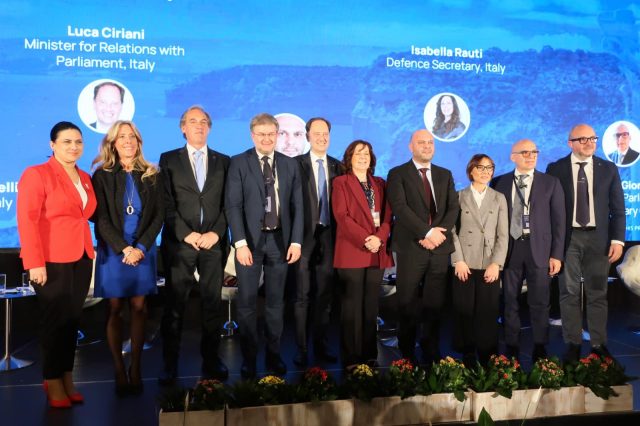
On the agenda of a conference organised by the ECR Party in Cyprus between the 28th and the 31st of March, the environmental policies imposed by the European Commission on Member States were discussed by ECR members in front of an impressive audience in Nicosia, as part of the “European Culture Weekend – Europe’s Energy Security Challenges”, where this sensitive topic is stirring up conflicting opinions among European leaders.
The environmental transition that EC representatives want for a green Europe in the future is mainly based on reducing carbon emissions, but unfortunately the policies in Brussels do not support each Member State individually. Why do we say this? Because if we take the example of Cyprus, although this country is able to produce energy using photovoltaic panel technology, having sunny days 365 days a year, the main source of energy used at household level is based on fossil fuels, i.e. the energy needs of the Cypriot state are produced from oil. Therefore most of the speakers argued that transition policies should be tailored to the specifics of each country. At the same time, the dependence of the European Union on imports mainly from China was questioned. It is well known that most of the technology (solar panels, windmills, etc…) that allows the use of renewable energy sources is not currently produced in the EU countries, and where this technology is produced (in EU countries), the costs are much higher than those coming from the Asian market. This is reflected in the final cost that the ordinary citizen pays in their desire to use the renewable energy source. One of the conclusions of the debate was that it is good to be completely independent when it comes to new energies, not to depend on others (non-EU countries).

The ideological approach by EC representatives to this much pushed Green Deal project and implicitly to achieving Europe’s climate neutrality has much higher costs in third countries. Here we refer to the costs of exploiting the raw materials needed to build the technology to support renewable energy production. These raw materials are taken from underdeveloped countries and often have a negative impact on the environment. In other words, Europe is going green, climate neutral, while African and Asian countries are increasing their global pollution rates. These African and Asian countries are also the main sources of migrants that the Europeans are somewhat obliged to support with financial aid.
That is why it is imperative to understand that each Member State of the European Union has a different capacity for renewable energy sources. This is primarily due to geographical differences. Countries in the south of the EU could generate electricity based on the photovoltaic system while countries in the north of Europe and those on the Atlantic coast should produce renewable energy using the wind, hydro and geothermal system. The term geothermal means how heat from within the earth can be converted into energy that can be used to heat homes or generate electricity in geothermal power plants.
As a conclusion of the Nicosia conference on Europe’s energy security is that future MEPs not only have to, but are even obliged, to ensure, through the future laws to be adopted in the EP, the economic and social sustainability of the measures implemented by the European Commission so that there really is a balance between all Member States.
Photo credit: Facebook / European Conservatives and Reformists Party



 Subscribe
Subscribe